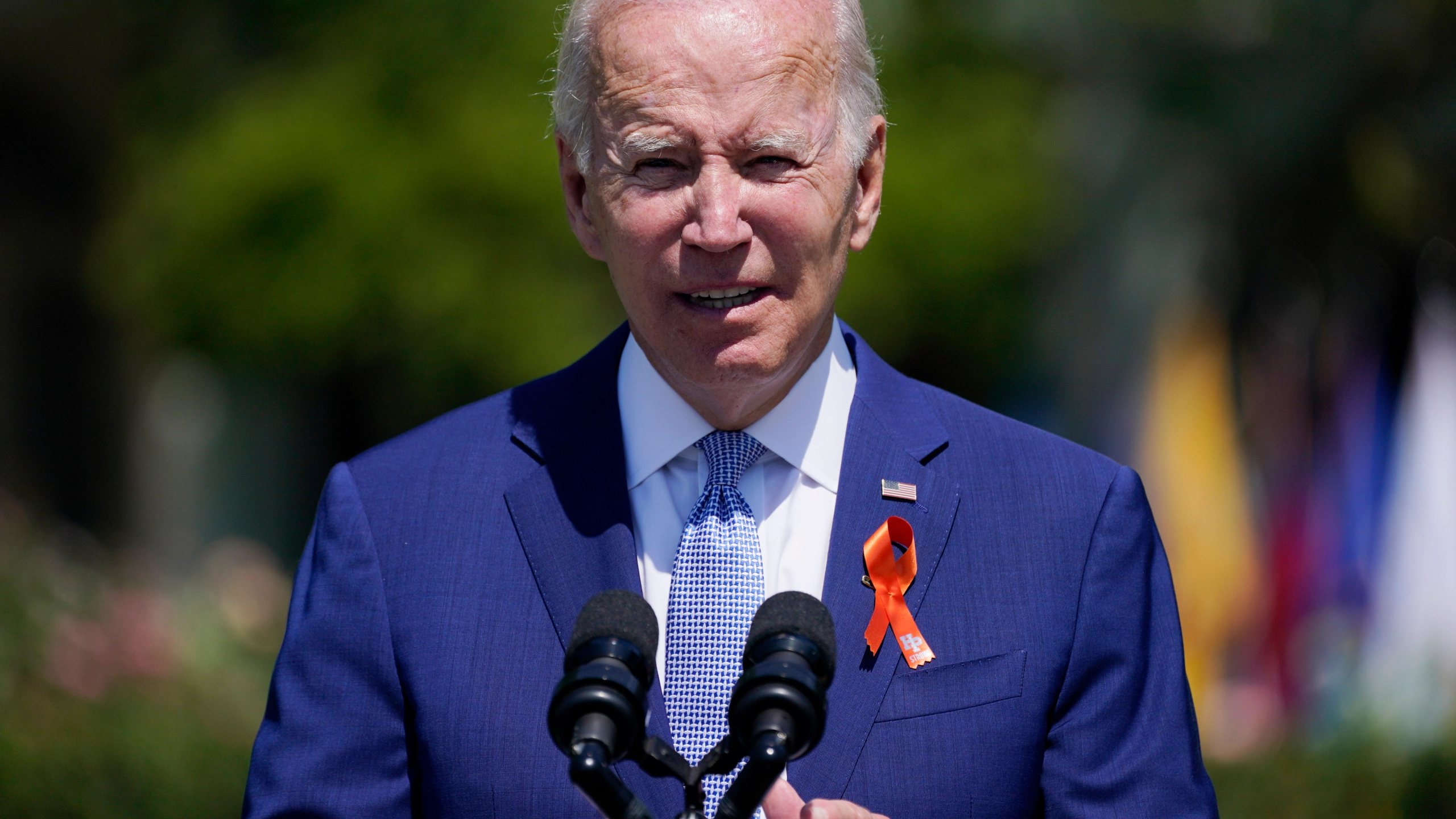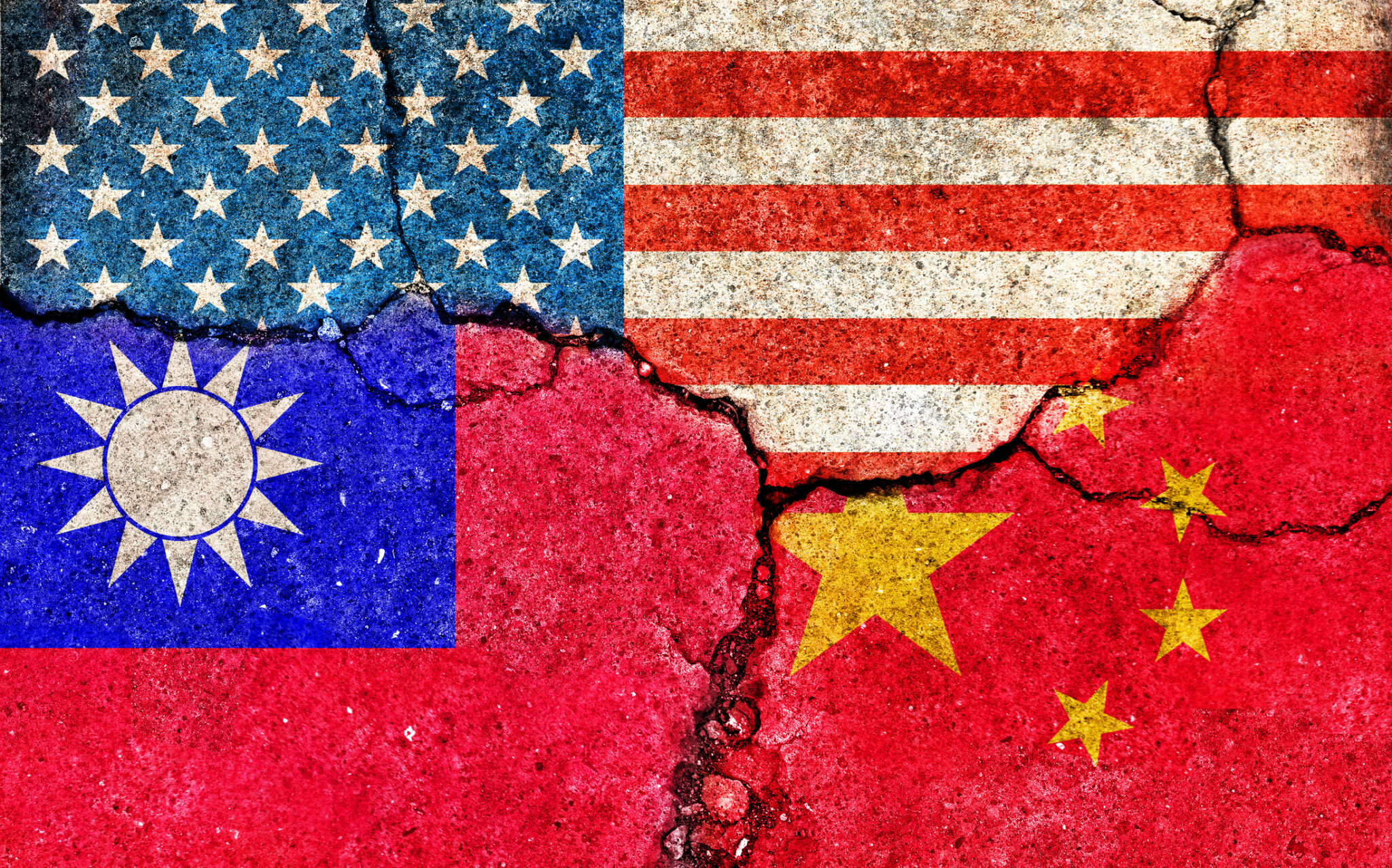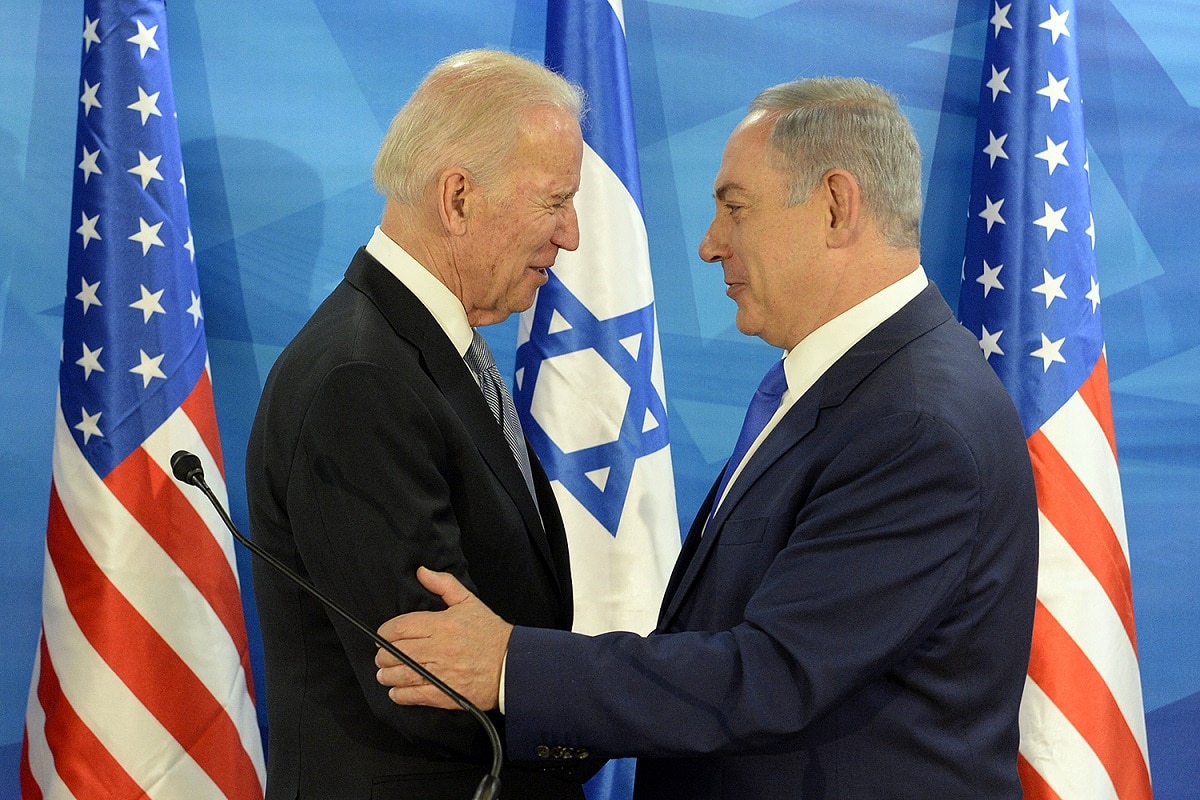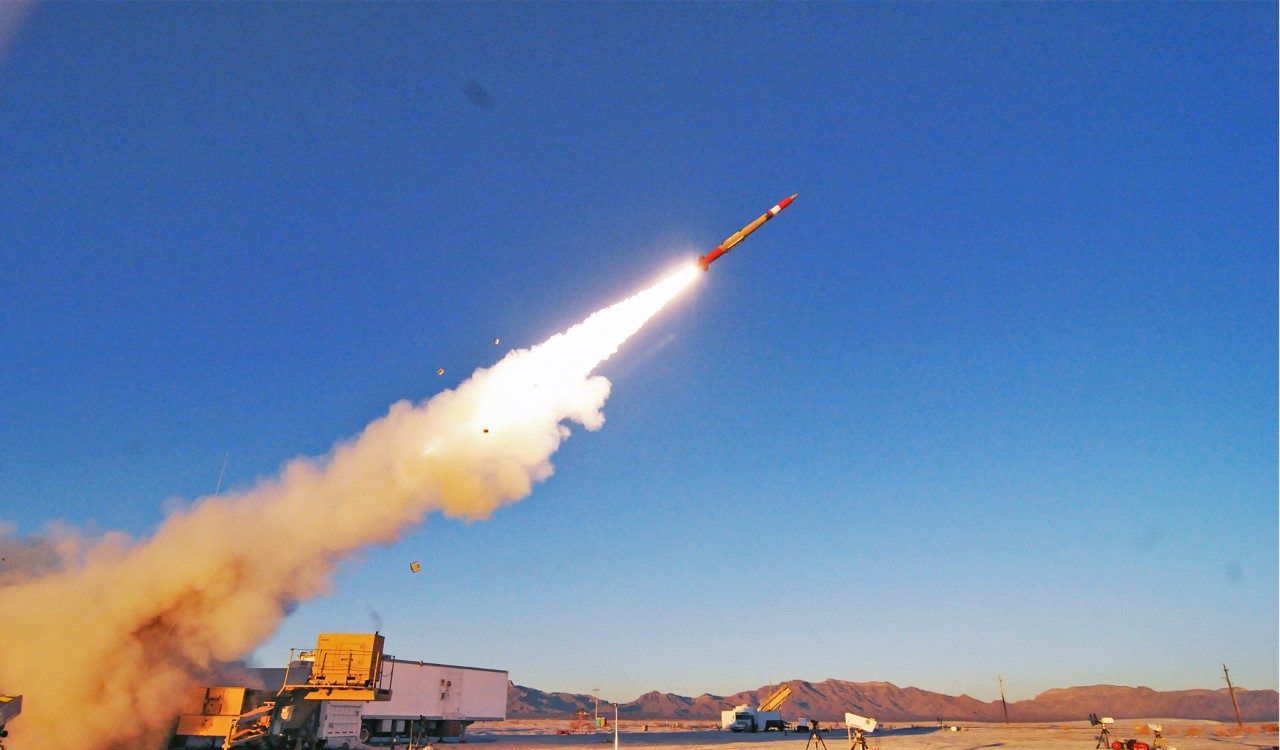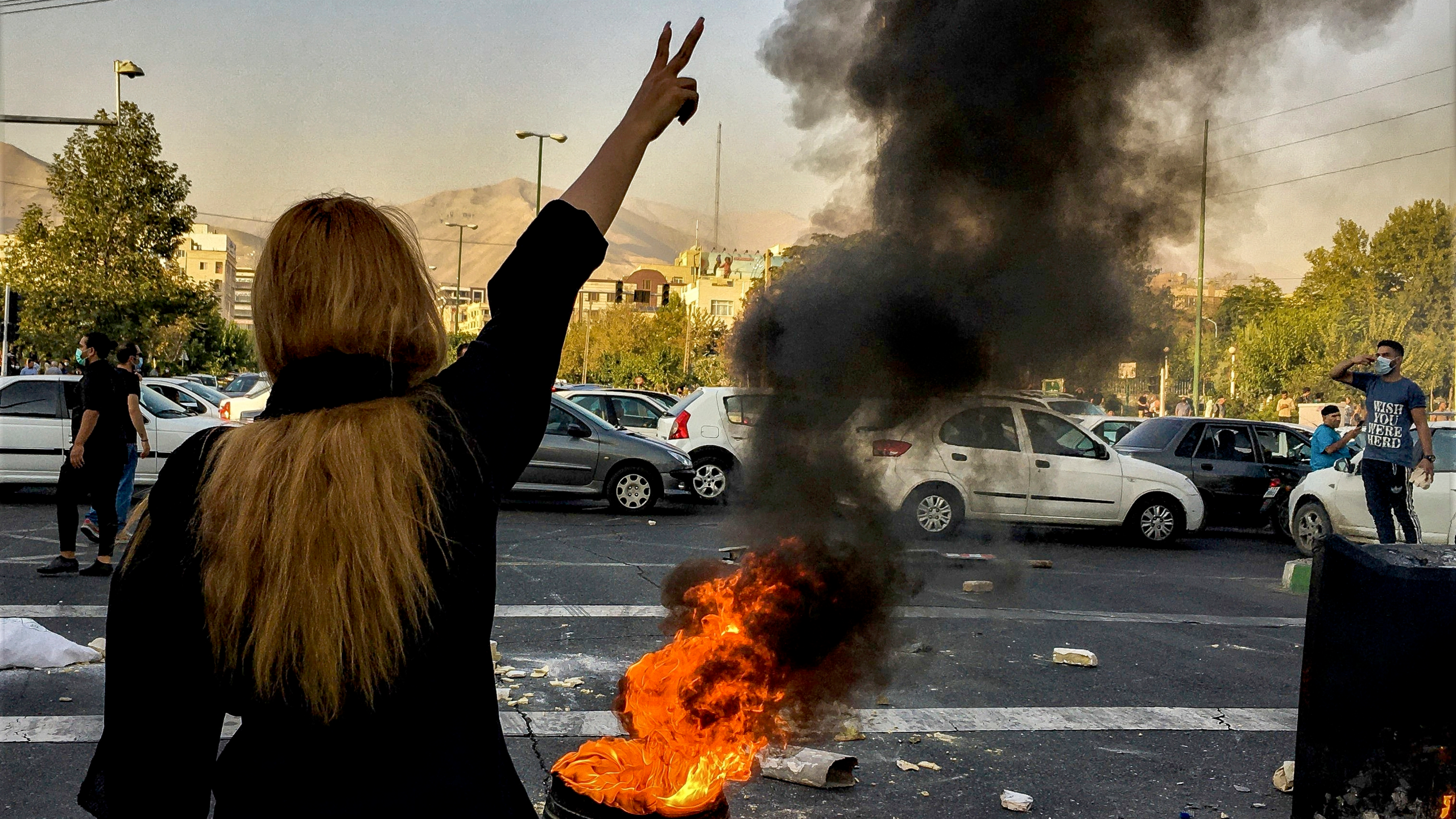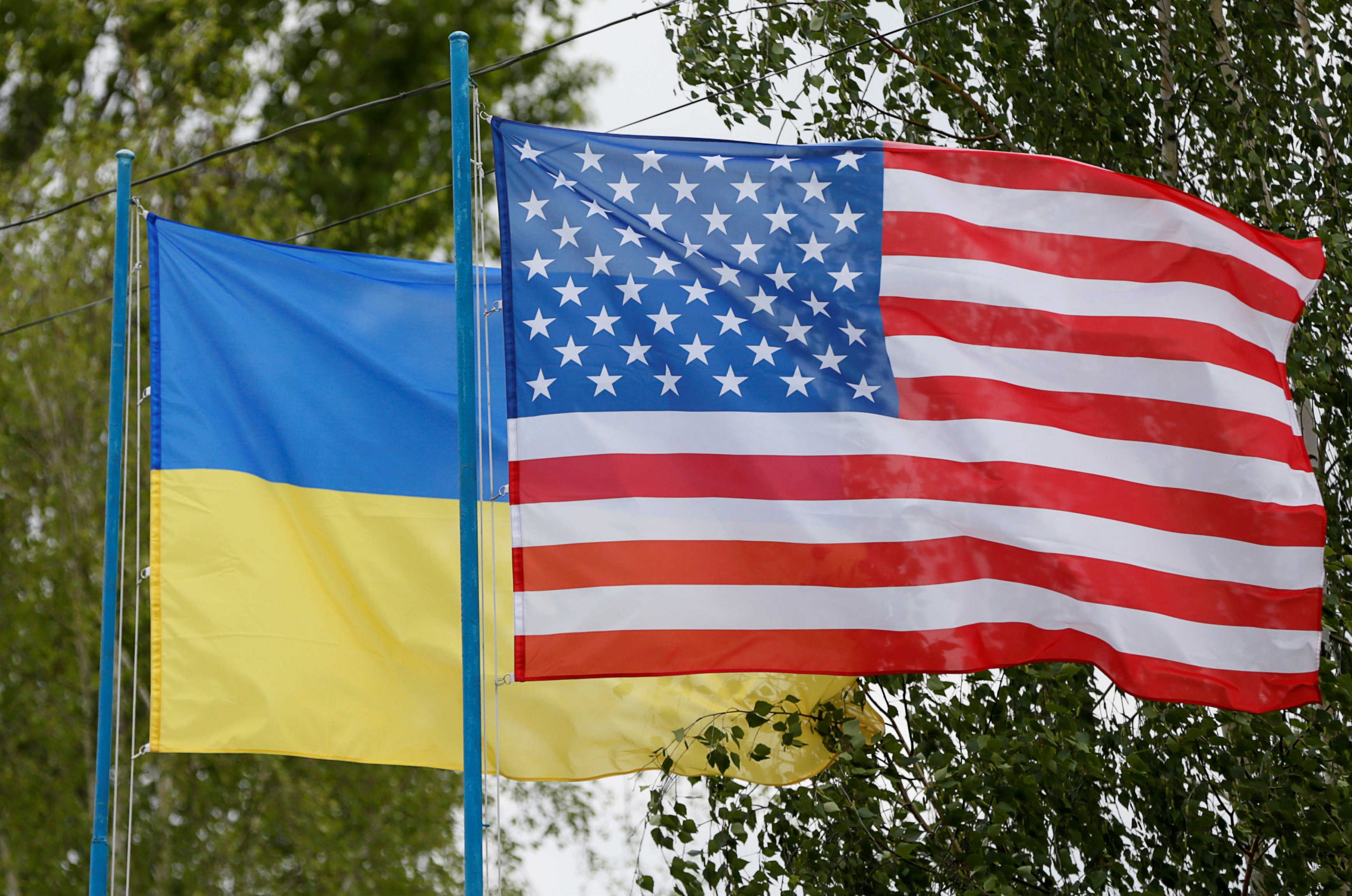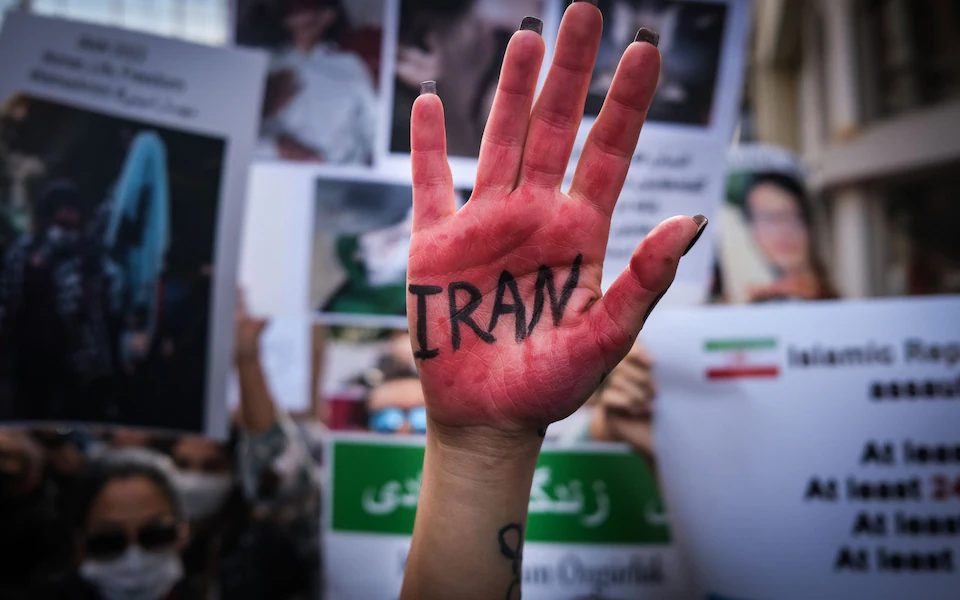By Dr. David Wurmser
The problem with the Israel-Lebanon maritime agreement just concluded is not only its content, but the surrounding arguments promulgated to justify it in the public eye. There may be secret provisions to the agreement that render it an achievement, but the public disclosures of the terms and rationale for the agreement fall far short, and in some cases are flat out wrong or are invented assertions. One might be tempted to excuse these as public roll-out efforts, which are often akin to putting makeup on warthogs, but some of the public statements from Israel meant to justify the agreement go beyond mere spin and become outright misrepresentations. And worse, some reveal a deeper cause for concern about the underlying defense and foreign policy conceptions informing Israel’s security establishment.
The agreement at least is an historic first…Not.
The United States negotiator, US envoy Amos Hochstein asserted the agreement as historic since it is the first agreement ever between Israel and Lebanon.1 An impressive achievement indeed, if it true. But it isn’t. In fact, there was an agreement – several to be accurate – between Israel and Lebanon. The Rhodes Agreements of 1948 established a de facto demarcation line, which is what was just reset under this agreement although this is heralded as the first such line established between the two nations. Second, like this agreement, it actually was both sides’ putting their signature to paper through an intermediary, the United States, so this agreement breaks no new ground in terms of tacit recognition of Israel.
Indeed, there was even a previous peace treaty between Israel and Lebanon signed on May 17, 1983. This was not a peace treaty dictated to Lebanon by Israel, but one negotiated under the auspices of the United States Special Envoy for the Middle East, Morris Draper. It contained provisions for buffer zones under the control of the Lebanese Armed Forces (LAF) and even contained security cooperation between the LAF and the Israel Defense Forces (IDF) to ensure deconfliction and to prevent third parties from using the territory to trigger conflict between the two nations. The treaty collapsed because the Syrian government, who occupied Lebanon but had been momentarily thrown on their heels by the Israeli invasion, recovered and toppled the Lebanese government and then installed a puppet regime in Beirut to move parliament under a new Speaker, Hussein al-Husseini, to formally revoke the treaty. Ironically, the previous Speaker, Kamel Assad, had championed the agreement with Israel, and had come from a prominent Lebanese Shiite family in Bent Jbail in the heart of the Shiite community of southern Lebanon, so his ouster became the main target not only of Syrian efforts to sabotage the agreement but of an Iranian campaign to destroy the traditional Shiite leadership of Lebanon and seize from it the mantle of the “Shiite Awakening” (which under Imam Musa al-Sadr’s leadership preceded the Iranian Islamic Revolution in 1979 by a half decade) and to pave the way for replacing the old elite with a new Hizballah-based Iranian Islamic revolutionary monopoly.
In short, there is nothing new or historic about the agreement. In fact, it aimed far lower and achieved far less than its predecessor agreements.
Well, then it strengthens Israel strategically by codifying an American security guarantee…Not.
The agreement erodes, and even endangers, US support for Israel for three reasons.
First, it is rather baffling that the strongest ally of the United States in the region should need a security guarantee from the United States bought through confessions to its enemy. Israel says that were it not for the agreement, there could well be war with Hizballah, which is also one of the most inimical and murderous entities to the United States, not only Israel. Lebanon at this point is a captive state dominated by Iran through Hizballah. Standing with Israel against Hizballah and the Hizballahi-run Lebanon should emerge from an inherent American interest and should not require either Israeli concessions or the imprimatur of Lebanon to validate it. In other words, the agreement does not display tightening and elevating US-Israeli strategic cooperation but reflects the fallen state of those relations – rather than emerging from a strictly bilateral understanding – that it now requires some sort of purchase from Israel’s enemy and a string of Israeli concessions to allow for its codification.
Second, the agreement ostensibly codifies the red lines and casus belli for Israel’s and the US’s responses if Israel’s waters or fields are again threatened. The fact that the Lebanese government has said it recognizes no such delineation as legally binding only hours after the deal was reached is disturbing enough, but in terms of US-Israeli relations, the true parameters of danger can be illustrated through a cautionary lesson from the end of the 2006 Israeli-Lebanon/Hizballah war of how this “commitment” could easily boomerang to haunt Israel gravely and potentially even cause the United States to cross Israel strategically in the future. After a month of war with Hizballah, Israel was seeking an exit. Israel’s foreign minister at the time, Tzippi Livni, turned both to Washington and to France, since they were seen as able to sway Lebanon, to help secure a ceasefire resolution through the United Nations. John Bolton was the US-UN ambassador, and I was the point of contact for the Vice President’s office.
France sought almost immediately to craft a UN resolution that would be legally binding – an idea onto which Israel’s security and foreign policy establishment quickly seized, believing that it would finally be able to cap and regulate Hizballah’s presence in Lebanon in such a way that its threatening behavior would be met with an international response. In essence, Israel tried to substitute its freedom of action and the power of the IDF for an international security guarantee to leash Hizballah and secure its norther border.
The United States, through the efforts of Deputy National Security Advisor Elliott Abrams and US UN Ambassador John Bolton, resisted the pressure of Foreign Minister Livni and the French, and torpedoed this effort. The fear that motivated us – and disturbingly not Israel’s defense and foreign affairs elite – was that it would clearly commit the US to side against the party that was internationally labeled as the violator of the ceasefire. One does not have to be a historian or Middle East scholar to know that the international community will not declare either Hizballah’s rearmament and redeployment onto the border a casus belli and justify an Israeli – let alone international – preemptive strike.
And then, a Hobson’s choice would be thrust upon Israel. Either Israel would have to acquiesce without any response to Hizballah’s buildup, or it would have to preempt but risk (really a certainty, not risk) its being labelled the aggressor which would trigger the legally binding provisions of response of the United Nations Security Council Resolution (UNSCR) 1701. In short, were UNSCR 1701 legally binding, then Israel would soon have found itself in a situation where it would be unable to act preemptively to prevent further build-up and threatening movements of Hizballah unless it would be willing do so – in the opinion of the international community – in violation of the legally binding resolution to which the United States would have been bound to uphold. To prevent this trap, US Ambassador Bolton stood his ground and forced through a tough but non-binding resolution, much to the chagrin of the French and Israelis. Of course, the moment the ceasefire was signed, Iran began resupplying Hizballah and Hizballah began deploying dangerously toward the south. One can only imagine how impossible it would have been for Israel over the last 17 years to continuously slice Hizballah down to size as it has by using force – including against depots and shipments, let alone against leadership. Israel would long ago have been subject to the very provisions it had sought to subcontract its defense to a outside entity through legal commitments.
Unfortunately, the current Israel-Lebanon agreement falls into the very trap which was avoided under UNSCR 1701. In fact, it is an even worse trap since this agreement fails to clearly define the behaviors by Lebanon that would trigger the security commitments. There is a failure in the agreement to define what would constitute a material violation on the Lebanese side, but it does clearly define Israeli commitments under the agreement, many of which are impossible to uphold if Lebanon or Hizballah act without such clearly defined legal restrictions. As such, this agreement threatens the exact same nightmare scenario as the Israeli-French proposal in 2006, which was rejected as the basis for UNSCR 1701.
Third, and perhaps most disturbing, is the assumption underlying this – that entangling the United States into a commitment to defend Israeli interests strengthens the Israeli-American relationship and reinforces the American strategic backstop – should not be taken as a given. In fact, it is worth examination.
For years, Israel’s defense elites have been seized by the conception that the support of the US government is an essential component of any strategic move or substantial military action, the key to which the Israeli government and security establishment believes demanded launching a full court campaign of convincing Washington’s elites in the corridors of power.
On one side, there is a” Zionist” problem with this outlook. One of the most refreshing and important aspects of the solidification of Zionism and the mooring of Israeli identity was the idea that it represented the rejection of the Diaspora “Galut” Jew – a person whose institutionalized weakness and disempowerment distorted the soul and left him at the mercy of the non-Jewish world and attempting futilely to make peace with his implacable haters. Israel’s defense establishment in recent years seems to be too burdened by the idea that it cannot act without approval from the United States in critical moments. This is most evinced by its belief that the Iran problem ultimately requires an American solution. But if it does, then what happens when the US refuses, or the US simply withdraws from the region, or the US enters an introverted or isolationist stage. The whole point of Zionism was that Israel’s fate is in Israel’s hands regardless of what others demand of it.
But on the other side, there is an equally large “American” problem. The support of the American leadership for Israel in America generally comes from the strong foundation of public support and sense of cultural affinity which Israel enjoys broadly in the American population. Part of this emerges from the unique Judeo-Christian roots of American identity which views itself as the New Jerusalem and seeks guidance culturally from its Christianity (even secular Americans still culturally respect their Judeo-Christian foundations). But part of this also emerges from the respect Israel has earned through its actions and its fierce independence – and distinctly NOT from appreciation of a history of seeking prior permission.
Indeed, Americans are increasingly displaying signs of exhaustion in bearing the burden for the defense of other nations who appear unwilling to bear the burden primarily themselves for their own defense. Very few American administrations in the last four or five decades, for example, have avoided a welling demand in the public for greater defense-burden sharing from our European allies. Israel has long stood out precisely because it never asked for American troops or entangling security guarantees. It was precisely the idea that when Israel acts, it does so because it is so important that it bear the burden alone. This independent determination and willingness to pay the price reminds Americans of themselves and convinces Americans popularly, and thus the leadership particularly, that they should support Israel both during specific episodes and in a more general sense.
Transforming Israel from strategic asset to albatross – from an independently-minded ally to a dependent obligation – is perhaps one of the greatest threats to public support, and through it the leadership’s support, for Israel that can be imagined. And yet, consistently over the last several decades, Israel’s defense establishment has tried to entangle the United States in Israel’s defense structure, thankfully all stillborn, through various schemes that could damage Israel’s brand image and erode American respect. This includes through the years:
- the idea of American guarantees in Judea and Samaria (even deployments to protect Israel) in exchange for Israel‘s withdrawal during the Oslo period,
- Israeli acquiescence during the Obama administration in American diplomatic efforts on Iran or to entice Israel to join the International Nuclear Non-Proliferation Treaty (NPT) and accept a regional nuclear weapons free zone in the region by offering a nuclear umbrella (Hillary Clinton) in exchange for Israel’s surrendering its reported nuclear capability,
- the idea of deploying US troops to the Golan Heights to secure Israeli withdrawal from there in the mid-1990s, and now
These efforts all never came to be, making this agreement the first to really be accepted by Israel since Eisenhower’s security guarantee to Israel in 1957 for withdrawing from the Sinai. The fate of that guarantee leaves room for anxiousness.
Simply put, Americans get tired of supporting nations that are not willing to defend themselves, and Israel is in danger through this constant tendency among Israel’s defense elites to slide into that category.
Equally disconcerting, however, is that while the primacy of maintaining Israel’s freedom of strategic maneuver has been rhetorically loudly tempted by virtually every Israeli politician, it took bold leadership to act on that conviction at the political level since the underlying defense establishment conception is that securing American approval transcends strategic maneuver. This ossified conception has gripped and dominated Israel’s defense elites since 1970, and it has left along the way a horrific trail of failure behind it starting with 1973. Strategic maneuvers and independence of action, including the ability to launch strategic preemption, is a critical, if not one of the two most critical, pillars of a proper Israeli defense strategy (the other pillar is strategic depth through buffers to allow for mobilization). Dependency and habitual reliance on “the green light” from Washington devastates that pillar.
Ah, but it reinforces deterrence…Not
The agreement exposes several deeply disturbing ideas that afflict the Israeli defense establishment about strategy and deterrence, some of which in truth reflect a more broadly-shared decay in Western strategic thinking.
The logic of the specific agreement as publicly stated is deeply flawed and troubling. All of its logic and assumptions are in one form or another a rendition of the belief that by bolstering Lebanon, you will create conditions for their severing their ties with Iran — or at least reducing them below other national objectives that gravitate toward a Beirut-Tehran rupture. It rests on two assumptions.
First that deterrence is a foundational strategy, but that the enemy might lack enough value that it renders it impossible to effectively threaten enough to deter. Thus, the more value the enemy is given by Israel which he would lose in war, the stronger the deterrent. This logic has been applied to the Palestinians as well, and it has proven entirely erroneous. The US tried a diluted and tenuous version with the Soviets in the 1970s, and it ended in failure with the Russian invasion of Afghanistan.
Indeed, just this week it was revealed that one of the core conceptions underlying the German government’s support (under Angela Merkel) for the Nord Stream II natural gas pipeline from Russia was that by giving Russia so great an economic interest, it would stabilize Russian European relations, make war impossible, and increase energy security for the European continent – an almost verbatim duplicate of the Israeli arguments regarding the Lebanon agreement. Of course, we all know how well these German assumptions panned out on February 24, 2022.
Second, proponents rely on a bedrock assumption that the enemy, in this case Lebanon, has any agency. That somehow it has power of decision to go to war, to make peace, to cease hostility, and that only if the incentives were great enough, then they would really cast the Iranians away and enter the promised utopia. Lebanon is a captive nation and has no agency, as did neither Czechoslovakia, Hungary nor Poland and others during the Cold War. No matter what we would have given the Czechs in 1945-1989, it would never have resulted in their choosing to bolt, because it was not a choice over which they had power to make. So too Lebanon. I have yet to meet a single Lebanese who does not wish dearly to rid themselves of Iran, they do not need a gas field to do so, but they are desperate because they have no power or control over any decision.
Moreover, if Hizballah’s centrally held value is to survive, and Iran’s centrally held value is to dominate Lebanon through Hizballah, then any attempt to develop a foundation of any sort for Lebanese independence inherently becomes a target for Hizballah’s and Iran’s ire – and their determined sabotage. In that way, it is precisely because the fields could become a foundation for reducing Lebanon’s dependence on Iran that it raises the latter’s interest in escalating hostilities, precisely to sabotage that movement. In other words, unless Hizballah is already neutralized and Iran’s clench broken, these moves toward building a Lebanese economy of separation will be still born, or even invite attack … unless the moves can be incentivized to be in Hizballah’s and Iran’s interest. The only pathway for that would be to allow these fields to become a structure for enriching and laundering money in times when they face international ostracism and sanctions. But that would then mean that this agreement — reached at time when the Iranian people are braving bullets to oust their tormentors – becomes a vehicle whereby Israel has allowed funding for the internally repressive and externally aggressive apparatus (including the Huthis, Hamas and Palestinian Islamic Jihad, let alone militias in Iraq) serving the Islamic Revolution to be infused with new sources of income.
Third, is a corollary to the last point. Could perhaps it arise that if Hizballah financially benefits from the gas proceeds — since no Israeli official has as yet argued that it will be possible to insulate the money from Hizballah skimming – then perhaps it might lead to a split between Hizballah (who will enjoy the revenue proceeds) and Iran (which will not)? But this betrays a highly questionable assumption regarding the interwoven and symbiotic nature of Hizballah-Iranian relations. Hizballah relies on Iran on so many levels, financial being only one. Hizballah’s uniqueness with respect to other Shiite factions in Lebanon has always been that it is essentially an Iranian appendage, but that this quisling status was masked through its alignment with the reigning ideological construct of the Iranian regime, the “Valeyat e-Faqeh” or Rule of the Jurisprudent. The Valeyat e-Faqeh must be understood as a revolutionary movement within Shiite Islam, and thus does not genuinely enjoy the theological support of Lebanon’s Shiite religious establishment. Without Iranian overlay, the clerical establishment of Hizballah would be superseded and wiped out by the older Shiite establishment, much of which still exists in Iraq. Remember the founding charter of 1985 of Hizballah:
“we, the Umma of Hizballah, consider ourselves a part of the state of Iran…We are committed to the orders of one leadership, represented by the Valeyat e-Faqeh, the Supreme leader.”
The most prominent clerics of Lebanon, such as the Ayatollah in Tyre, have far greater following and Silsalah (pedigree), oppose the idea of the Valeyat e-Faqeh. They would seek to diminish and subordinate Hizballah clerics’ influence in a heartbeat. The same can be said of Amal against Hizballah. Indeed, in an attempt at subordinating and fusing Amal with Hizballah, Hizballah made Shaykh Subhi al-Tufayli for two years (1998-91) the Secretary General of the Hizballah. Tufayli was a valued student of the father of the Shiite Awakening, the vanished Imam, Musa al-Sadr. But he opposed Iran’s revolutionary reigning theology of Valeyat e-Faqeh, which strongly suggested – given that he was that the most senior and genuine actor that was present at the creation of the Shiite Awakening in the 1970s – that Musa al-Sadr himself would likely have been opposed to the Iran’s definition of Shiism. This profoundly threatened the Iranian regime which was trying to usurp the mantle to itself of being the father of the Shiite Awakening and the successor to Imam Musa al-Sadr. Indeed, Iran was already on thin ice in terms of the Shiite Awakening since its key strategic ally at the beginning of the revolution in Iran was Yasser Arafat and the PLO, who is largely believed among Shiites to have ordered the assassination/disappearance of Imam Musa al-Sadr and executed him via his ties to Qadhafi in Libya, who was the other Arab leader with whom the Iranian regime established an early strategic partner. As such, the threat of Tufayli’s opposition to the Iranian regime was clear and present, and as such he was removed and ostracized. Without Iran’s heavy hand, not only would old Shiite patterns almost instantly resurface and consume Hizballah, but Iran’s usurped mantle of leading the Shiite Awakening would be exposed and collapse.
As such, Hizballah does not have an indigenous basis to survive its competition with other Shiite trends. There is no Hizballah possible without its being an interwoven part of Iran’s dominance, and vice versa, there is no Iran in Lebanon without Hizballah. As such, trying to create a Hizballah-Iran wedge is like trying to seduce an arm to sever itself from a body. Neither Hizballah nor the arm even have a central nervous system and brain independent of the mother body.
Finally, as a last thought about whether this agreement strengthens Israel’s deterrence. Israel’s government has trumpeted that were there no agreement, then there would be war and that Israeli gas fields would be threatened. This is all but an admission that Hizballah’s threats against Karish – backed up by the flying of a few unarmed Hizballahi drones that Israel shot down – drove Israel’s government to concede vast maritime rights and even its sovereign territorial waters as essentially a protection payment against the Hizballah mafiosi-like threat. The logic underpinning the idea that this strengthens deterrence in the future frankly simply eludes me.
Well, Israel is emerging as a strategic gas player, and this unlocks that potential…Not
The Israeli government has argued that it needed this agreement to bring its Karish gas field on-line. Hizballah, sometimes itself and sometimes channeled through Lebanon’s voice, has threatened every Israeli gas find exploration and development until now, and insists that it now has an agreement with the Palestinian Islamic Jihad to attack Israeli fields in a future conflict. Lebanon last year threatened to act against Israel’s giant Leviathan field, at times claiming it was part of its territory and at times because it accused Israel of stealing its gas through horizontal drilling. In short, there was nothing different about the Karish field from all the previous fields, and Israel has in an unencumbered way thus far developed all those fields thanks to the superior defense capabilities of its navy. And in the end, it is the maintenance of those capabilities that will continue to be the foundation for the security needed to develop Karish. It is thus hardly believable that for some reason Karish could not be developed when others were because Lebanon did not green-light it. Moreover, even the Lebanese admit that Karish was never really on the table in these talks, and that they never seriously claimed Karish. In other words, it is unclear how this agreement makes it easier in any way to develop Karish.
Broadening the aperture, one notices that Israel is at the edge of perhaps one of the greatest moments of strategic good luck it has ever faced. The sudden, great dependency of Europe on finding new sources of gas, combined with the presence of gas in Israel and the ability offered to bring yet more gas through Israel to Europe, position Israel to become a critical gas transmission hub of about 60 to 80 billion cubic meters of gas per annum. But Israel is deliberately denying its territory for transmission by:
- Sabotaging the UAE’s desire to build a transmission pipeline for gas through the Eilat-Ashqelon pipeline company rights of way,
- Pushing export of Israeli gas through Egypt,
- surrendering territory in which it is possible substantial more gas may yet be discovered,
- Wasting a precious year of exploration by imposing an inexplicable moratorium, and
- Pushing the robust evolution of Lebanese gas which will compete with Israeli gas in Europe and could itself offer as the competing location of being a hub for gas from Iraq, Syria and Lebanon — thus effectively forfeiting for Israel this immense strategic gift over which it had no competition until the Israeli government created it via Egypt and Lebanon.
Taken together, there is no way to avoid concluding that out of ideological reasons (possibly environmental), Israel’s government has deliberately retarded and diminished the potential for finding, producing and exporting gas, let alone to position Israel as a vital national asset in becoming the core east-Mediterranean gas hub.
Indeed, Israel may have just unlocked the potential for a large alternative gas hub structure anchored to Qatar and Turkey just announced its intention to become the new gas hub for Europe (although including Russian gas). This unlocks the potential for Qatar to lead an effort to connect its own gas structures to the eastern leveraging the Lebanese gas fields to connect to a Turkish-based pipeline structure into Europe. Six months ago, this was not a conceivable state of development since Lebanon was considered too unstable, the legal infrastructure in Lebanon was rickety, sanctions afflicted the development of the fields, as did the irresolution of the demarcation line with Israel. Israel, and Egypt — who is in tension with Turkey and would be loath to build a pipeline that crosses Turkish waters or territory — for that matter, thus had no effective competition for becoming a gas hub. And now, suddenly Lebanon may well emerge as the gas hub, leaving Israeli gas stranded beyond its current structure.
Competition is a natural part of life, and Lebanon certainly had the potential to become a competitor along these parameters all along, about which Israel could do nothing other than expedite its own development – which it curiously has been extremely slow to do (or even outright eager to halt) over that last year. But what is mystifying is why Israel, after having spent a year stalling its own exploration and export infrastructure development, decided to remove a pound of its own flesh to encourage Lebanon to compete with itself in a way that may render Israel’s potential hydrocarbons strategic importance for Europe dead in the water.
In the end, why did the Israeli government agree to this deal, and why does it do so with such gusto? One can certainly attribute it to cynical political calculations — especially given that this is the annual election season in Israel. Indeed, the rise of cynicism is a phenomenon worthy of examination in and of itself because it afflicts many Israeli politicians as ideas and ideologies fade in currency in organizing political parties
But attributing this solely to election cynicism skims over the depth of the problem herein exposed. The government’s public justifications for the deal are possibly heartfelt and genuine. Indeed, they likely are since they reflect deeply held, but equally dangerous, flawed conceptions governing Israel’s strategic imagery, the evidence for which stretches back for decades already. One shape or form of the arguments forwarded to explain this dal have appeared at various levels of development as far back as a half century and reflect a serious, long-term deterioration in the solidity and rigorousness of Israeli strategic thinking and analysis. Moreover, it is not one “conception” that bedevils the planners and analysists, but a collection of conceptions which have remained beyond critical examination because of a stilted historiography, or narrative, of events and Israeli strategic history that prevents either realization or reexamination of thought.
In other words, what disturbs most about this agreement is not only its terms, but what it exposes about the problematic state of strategic thinking governing Israel’s defense establishment.

